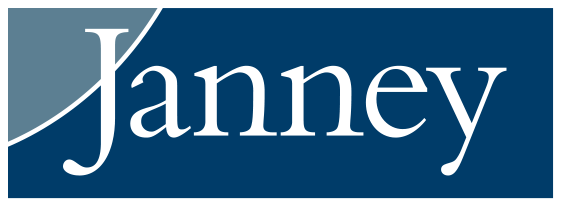While a Roth IRA is a good option for retirement planning because of its favorable tax treatment that allows after-tax contributions, tax-deferred growth, and tax-free distributions at retirement, it has limitations.
For example, perhaps you’ve maximized your Roth IRA plan annual contribution and still want to save more, or your income may be too high for you to be eligible for a Roth IRA. Or, perhaps you maxed out your 401(k) and want to save more for retirement, but you’re not sure how.
Consider cash value life insurance—a type of permanent life insurance that includes a savings component. While many use life insurance for its death benefit, in recent years cash value life insurance has become a popular planning strategy among those seeking to maximize their tax-free income during retirement.
How Does This Strategy Work?
Depending on the type of policy you purchase, the cash value could grow at a fixed or variable interest rate over time. You may be able to borrow against the policy's cash value via a tax-free loan to help fund retirement.
If you pass away prematurely, your beneficiary typically receives only the death benefit (tax-free). However, there are some policies that can be purchased with an increasing death benefit option, which will grow as your cash value grows, allowing for a larger death benefit than originally purchased.
Comparison Between Roth IRA and Cash Value Life Insurance
The chart below shows how cash value life insurance offers similar benefits as a Roth IRA:
| Strategy | Roth IRA | Cash Value Life Insurance Alternative |
| Tax-free accumulations | Yes | Yes1 |
| Tax-free distributions | Yes | Yes1 |
| Tax-free income to beneficiaries | Yes | Yes |
| Requirement for RMDs | No | No5 |
| Contribution ceiling2 | Yes | No |
| Income limitation | Yes | No |
| Earned income contributions requirement | Yes | No |
| Tax penalty of early distributions | Yes | No1 |
| Deductible contributions2 | No | No |
How Cash Value Life Insurance Differs
While there are similarities between a Roth IRA and cash value life insurance, there are also important distinctions:
- Life insurance doesn’t have income limitations like a Roth IRA. A married couple filing jointly with income of $218,000 (for 2023) or above can’t directly contribute to a Roth IRA.³
- Roth IRA annual contribution limits for 2023 are $6,500 ($7,500 for those 50 and older).⁴ Whereas life insurance policies can be structured to accept much more than $7,500 in annual premiums—a significant benefit if you’re trying to catch up and build substantial savings before you retire.
- Roth IRA contributions may be subject to market risk depending on the investment options you selected. Therefore, if the markets are down, your Roth IRA values could go down, too. You can own permanent life insurance policies that never decrease in value and are not subject to market volatility.
- Life insurance provides a tax-free death benefit. This feature provides financial assistance during times of need and may provide additional funds to help fulfill financial goals.
- There are restrictions on when and how you can get earnings out of a Roth IRA. With cash value life insurance, you can access your available policy values when you need them, without penalty.
Other Considerations to Keep in Mind
- Cash value life insurance comes without many of the limitations of a Roth, but you will have to wait until the cash value in the policy builds up substantially before taking tax-free withdrawals.
- Once a substantial cash value has accumulated, you are free to begin making tax-free withdrawals from the policy even if you have not yet reached age 59½. These withdrawals do not have to be repaid into the policy, but they reduce the policy death benefit.
- You also have the option of purchasing a high death benefit policy. If you plan to use cash value life insurance for retirement income planning, you should plan on keeping the policy well-funded because it is important that the policy remain active until death. Surrendering the policy early or allowing it to lapse can leave you with significant penalties or a large tax bill.
- There are other charges associated with a life insurance policy, including, but not limited to, a frontend load, administrative fees, investment management fees, cost of insurance charges, and charges for optional benefits selected.
- Like all life insurance contracts, your health will be considered as part of the underwriting process.
Whether or not you purchase a cash value life insurance policy will depend on how much risk you want to assume and how much flexibility you want to have. Carefully review all the features, benefits, and costs of a cash value life insurance policy with your Financial Advisor—and compare it to the advantages of a Roth IRA—before making this decision.
Working With Janney
Depending on your financial needs and personal preferences, you may opt to engage in a brokerage relationship, an advisory relationship or a combination of both. Each time you open an account, we will make recommendations on which type of relationship is in your best interest based on the information you provide when you complete or update your client profile.
When you engage in an advisory relationship, you will pay an asset-based fee which encompasses, among other things, a defined investment strategy, ongoing monitoring, and performance reporting. Your Financial Advisor will serve in a fiduciary capacity for your advisory accounts.
For more information about Janney, please see Janney’s Relationship Summary (Form CRS) on www.janney.com/crs which details all material facts about the scope and terms of our relationship with you and any potential conflicts of interest.
By establishing a relationship with us, we can build a tailored financial plan and make recommendations about solutions that are aligned with your best interest and unique needs, goals, and preferences.
Contact us today to discuss how we can put a plan in place designed to help you reach your financial goals.
Janney Montgomery Scott LLC, its affiliates, and its employees are not in the business of providing tax, regulatory, accounting, or legal advice. These materials and any tax-related statements are not intended or written to be used, and cannot be used or relied upon, by any taxpayer for the purpose of avoiding tax penalties. Any such taxpayer should seek advice based on the taxpayer’s particular circumstances from an independent tax advisor.
1 Under current federal tax rules, you may generally take federal income tax-free withdrawals up to your basis (total premiums paid) in the policy or loans from a life insurance policy that is not a Modified Endowment Contract (MEC). Certain exceptions may apply for partial withdrawals during the policy’s first 15 years. If the policy is a MEC, all distributions (withdrawals or loans) are taxed as ordinary income to the extent of gain in the policy, and may also be subject to an additional 10% premature distribution penalty prior to age 59½, unless certain exceptions are applicable. Loans and partial withdrawals will decrease the death benefit and cash value of your life insurance policy, and may be subject to policy limitations and income tax. In addition, loans and partial withdrawals may cause certain policy benefits or riders to become unavailable, and may increase the chance your policy may lapse. If the policy lapses, is surrendered or becomes a MEC, the loan balance at such time would generally be viewed as distributed and taxable under the general rules for distribution of policy cash values.
2 While contributions apply to a Roth IRA, contributions to a life insurance policy are called premiums.
3 IRS.gov, Amount of Roth IRA Contributions That You Can Make For 2023
4 IRS.gov, Retirement Topics - IRA Contribution Limits
5 The death benefit and product design selected may limit the amount of premiums the policy can accept in early years, without becoming a Modified Endowment Contract (MEC).
Variable Life Insurance: Is not a deposit of any bank. Is not FDIC insured. Is not insured by any federal government agency. Is not guaranteed by any bank or savings association. May go down in value.
About the author

Vice President, Director of Insured Solutions Consulting
Read more from Peter A. LongoRelated Articles
-
Tax Planning
3 Tax-Planning Considerations Ahead of Next Year's TCJA Sunset
The Tax Cuts and Jobs Act of 2017 is scheduled to sunset at the end of 2025, meaning significant ... -
Insurance & Annuities
Insurance Solutions at Janney
Janney offers a variety of insurance solutions to help meet your individual needs and preferences... -
Insurance & Annuities
Reposition Assets for Tax-Efficient Wealth Transfer
If you’re close to or in retirement and asking yourself how you can best pass your wealth on to y...



